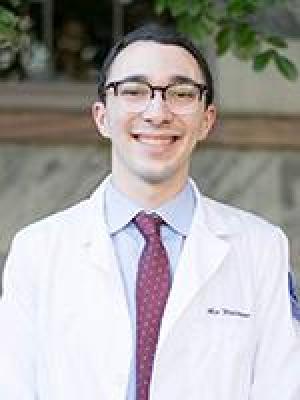
Neuroimmunology, Genetics, Pharmacology
B.S. Honors Neurobiology and Spanish, University of Wisconsin-Madison, 2016
Medical student at Emory University (In progress)
Alex Waldman graduated from the University of Wisconsin-Madison in May 2016 where he earned comprehensive honors degrees in both Neurobiology and Spanish, while simultaneously earning certificates in Global Health, European Studies, and Stem Cell Sciences. At the university, he immersed himself in a wide variety of extracurricular activities. As a member of the Biology Core Curriculum Outreach Ambassadors, Alex coordinated monthly bedside science outreach events at American Family Children's Hospital for patients employing the process of inquiry-based learning. Alex also studied abroad in Toledo, Spain where he participated in an immersion internship at the Hospital Nacional de Parapléjicos and learned artistic rehabilitation techniques. As a scientist in the Peter Ferrazzano laboratory, Alex investigated the age-dependent contribution of microglial neuroinflammation to the pathology of hypoxic-ischemic brain injury. His contributions were published in the Journal of Neuroimmunology following presentation at the Society for Neuroscience. Alex was also awarded a summer stem cell fellowship to work in Qiang Chang’s laboratory and investigate the pathophysiology of Rett Syndrome. His contributions were published in the Journal of Neuroscience.
During his preclinical training at Emory University School of Medicine, Alex was president of the Medical Spanish Interest Group where he helped organize the annual Hispanic Health Fair in Gwinnett County. In addition, he received grants from the Consortium of Multiple Sclerosis Centers and the Radiological Society of North America to stay connected to research and investigate the sexually dimorphic nature of multiple sclerosis utilizing biochemical and radiological approaches.
As an NIH-Oxford Scholar, Alex will be mentored by Michael Lenardo and Gabriele De Luca. His project will investigate the genetic underpinnings of multiple sclerosis to better understand heterogeneity in pathogenesis and response to treatment.
Dr. Michael Lenardo (NIAID) and
Prof. Gabriele DeLuca (Oxford)


